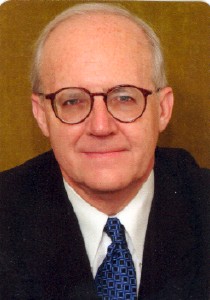Jeanette Brooks Priebe (born July 4, 1937) was the Tennessee-born Director of the Louisville Civil Service Board in Kentucky when she instituted the first affirmative action hiring program for the Louisville metro area public service personnel. During the 1970s, Priebe directed the integration of the Louisville Metro Police Department and the Louisville Division of Fire.
Priebe led her department in devising a new method of hiring new applicants. Instead of receiving only the top candidates, the hiring department would be able to review all applicants, assuring then that all were considered – including African Americans and women. The new organizational process included a specific job classification system that took a year of intense analysis to complete. Four years before, these descriptions were vague, and a class action suit had been filed on behalf of the one African-American employee. The county government's Personnel Department became "more centralized and, more importantly, more professional." There were also new procedures for applicant screening and recruiting. Priebe once said, "Unless you're allowed to find the most qualified people, it's a literal misuse of tax money." [1]
After working as the Director of the Civil Service Board, Priebe worked for then-Judge Mitch McConnell as Jefferson County Personnel and Executive Council Agency Member-At-Large for the International Personnel Management Association.
Jeanette Brooks Priebe was born in Bolivar, Tennessee and attended Union University in Jackson, Tennessee before enrolling in Northwestern University in Evanston, Illinois. She was the first woman to serve as the Director of the Civil Service Board in Louisville, Kentucky.
Affirmative action refers to a set of policies and practices within a government or organization seeking to benefit marginalized groups. Historically and internationally, support for affirmative action has been justified by the idea that it may help with bridging inequalities in employment and pay, increasing access to education, and promoting diversity, social equity, and social inclusion and redressing alleged wrongs, harms, or hindrances, also called substantive equality.

The NAACP Legal Defense and Educational Fund, Inc. is an American civil rights organization and law firm based in New York City.

Executive Order 11246, signed by President Lyndon B. Johnson on September 24, 1965, established requirements for non-discriminatory practices in hiring and employment on the part of U.S. government contractors. It "prohibits federal contractors and federally assisted construction contractors and subcontractors, who do over $10,000 in Government business in one year from discriminating in employment decisions on the basis of race, color, religion, sex, or national origin." It also requires contractors to "take affirmative action to ensure that applicants are employed, and that employees are treated during employment, without regard to their race, color, religion, sex or national origin." The phrase affirmative action had appeared previously in Executive Order 10925 in 1961.

Danny Julian Boggs is an American lawyer and a senior United States circuit judge of the United States Court of Appeals for the Sixth Circuit. He was appointed to the court in 1986 and served as its chief judge from September 2003 to August 2009. Boggs was on the short list of President George W. Bush's candidates for the U.S. Supreme Court.

The Office of Federal Contract Compliance Programs (OFCCP) is part of the U.S. Department of Labor. OFCCP is responsible for ensuring that employers doing business with the Federal government comply with the laws and regulations requiring nondiscrimination. This mission is based on the underlying principle that employment opportunities generated by Federal dollars should be available to all Americans on an equitable and fair basis.
The Tennessee Department of Personnel is a Cabinet-level agency within the state government of the U.S. state of Tennessee, headed by Nat E. Johnson, the Acting Commissioner of Personnel. The agency administers the employment applications process for Tennessee's state departments, assists other agencies with personnel practices, and advises the governor on personnel policy, and meeting the needs of the government's 38,000 employees in Tennessee's 95 counties. The Department is housed in the James K. Polk State Office Building.

The Louisville Metro Council is the city council of Louisville, Kentucky. It was formally established in January 2003 upon the merger of the former City of Louisville with Jefferson County and replaced the city's Board of Aldermen and the county's Fiscal Court. Louisville City Hall houses the offices and chambers of the council.

The Louisville Metro Police Department (LMPD) began operations on January 6, 2003, as part of the creation of the consolidated city-county government in Louisville, Kentucky, United States. It was formed by the merger of the Jefferson County Police Department and the Louisville Division of Police. The Louisville Metro Police Department was most recently headed by Jacquelyn Gwinn-Villaroel since January 2, 2023. On Tuesday June 25, 2024, Chief Gwinn-Villaroel resigned following an ongoing sexual harassment and abuse scandal among the Louisville Metro Police Department. Major Paul Humphrey was appointed Interim Chief by Mayor Craig Greenburg. A national search will be conducted for a permanent chief. LMPD divides Jefferson County into eight patrol divisions and operates a number of special investigative and support units. The LMPD is currently negotiating a consent decree with the United States Department of Justice (DOJ) subsequent to a 2023 investigation by the DOJ that concluded that the LMPD engaged in a decades long pattern of civil rights abuses.

In the United States, affirmative action consists of government-mandated, government-approved, and voluntary private programs granting special consideration to groups considered or classified as historically excluded, specifically racial minorities and women. These programs tend to focus on access to education and employment in order to redress the disadvantages associated with past and present discrimination. Another goal of affirmative action policies is to ensure that public institutions, such as universities, hospitals, and police forces, are more representative of the populations they serve.

The government of Louisville, Kentucky, headquartered at Louisville City Hall in Downtown Louisville, is organized under Chapter 67C of the Kentucky Revised Statutes as a First-Class city in the state of Kentucky. Created after the merger of the governments of Louisville, Kentucky and Jefferson County, Kentucky, the city/county government is organized under a mayor-council system. The Mayor is elected to four-year terms and is responsible for the administration of city government. The Louisville Metro Council is a unicameral body consisting of 26 members, each elected from a geographic district, normally for four-year terms. The Mayor is limited to a two consecutive term limit, while members of the Louisville Metro Council are not term limited.

Louisville Metro Emergency Medical Services is the primary provider of pre-hospital life support and emergency care within Louisville-Jefferson County, Kentucky. LMEMS is a governmental department that averages 90,000 calls for service, both emergency and non-emergency, each year.

Jefferson County Emergency Medical Services was the primary advanced life support provider for Jefferson County, Kentucky outside the limits of the City of Louisville. The merger of Jefferson County Government with the City of Louisville brought about the combining of JCEMS with the EMS bureau of the Louisville Division of Fire to form Louisville Metro EMS in early 2005. Therefore, as a separate and distinct entity, it no longer exists.

David L. Huber is an American attorney who is the retired United States Attorney for the Western District of Kentucky.

The following outline is provided as an overview of and topical guide to the United States Commonwealth of Kentucky:
Suzanne Post was a civil rights activist in the struggle against discrimination and social injustice in Kentucky. She was born to Morris and Betty Kling in Louisville, Kentucky on March 19, 1933. She joined a student branch of the National Association for the Advancement of Colored People while a student at Indiana University Bloomington, and continued her student activism at the University of California Berkeley. In her long career, she advocated for social justice and led the way in the battle for civil rights, women's rights, LGBTQ rights, and equity in housing and education. Her Uncle Arthur Kling helped found the Kentucky Civil Liberties Union in 1955 and served on the Board of the Louisville Urban League. Michael Aldridge, a former ACLU director, in an article for the Louisville Courier Journal, wrote "the Kling family 's own personal experience with bigotry, and a shared memory of historic oppression and violence, made them fight all prejudice and restrictions on the civil liberties of others".

Dolores Delahanty is a social activist and political leader in Louisville, Kentucky. She was a founding member of the National Women's Political Caucus during the early Civil Rights Movement, and she was critical to the success of Kentucky's Fair Credit Law. Delahanty has devoted her life to improving the lives of others, primarily those of Kentucky women and children.

Lutheran Church–Missouri Synod v. FCC was a 1998 D.C. Circuit Court of Appeals case involving the Federal Communications Commission's (FCC) enforcement of the Equal Employment Opportunity Act and the Fifth Amendment. The FCC claimed that the Lutheran Church–Missouri Synod (LCMS) had violated the FCC's Equal Employment Opportunity requirements by not hiring enough minorities/women and by requiring a knowledge of Lutheran doctrine in order to be hired to work at its two FM and AM radio stations located in Clayton, Missouri.

The Fairness Campaign is a Louisville, Kentucky-based lobbying and advocacy organization, focusing primarily on preventing discrimination on the basis of sexual orientation and gender identity. The Fairness Campaign is recognized by the IRS as a 501(c)(4) organization. The organization is a member of the Equality Federation.
Priebe is a surname. Although mainly found in German-speaking countries, it is derived from the Slavic name Pribislav.
Dave Nakdimen was an American broadcast journalist, and the political reporter for Louisville's WAVE 3 (TV) News. Nakdimen covered many major stories in Louisville during his long career. He was elected to the Kentucky Journalism Hall of Fame in 1998.